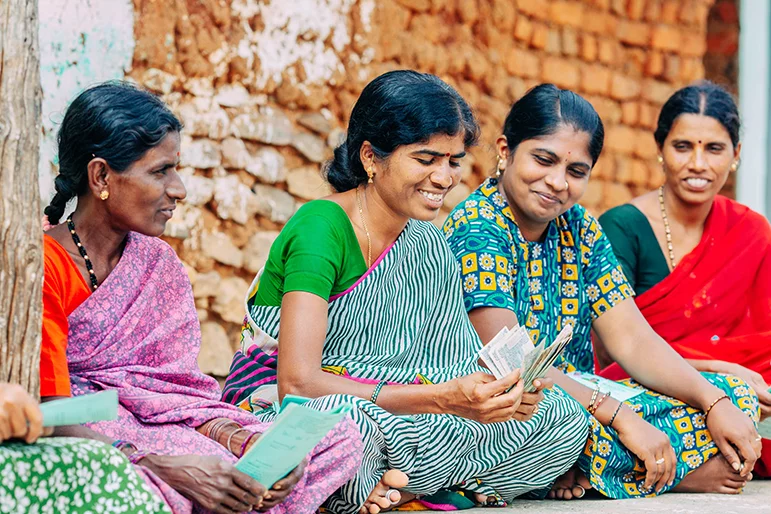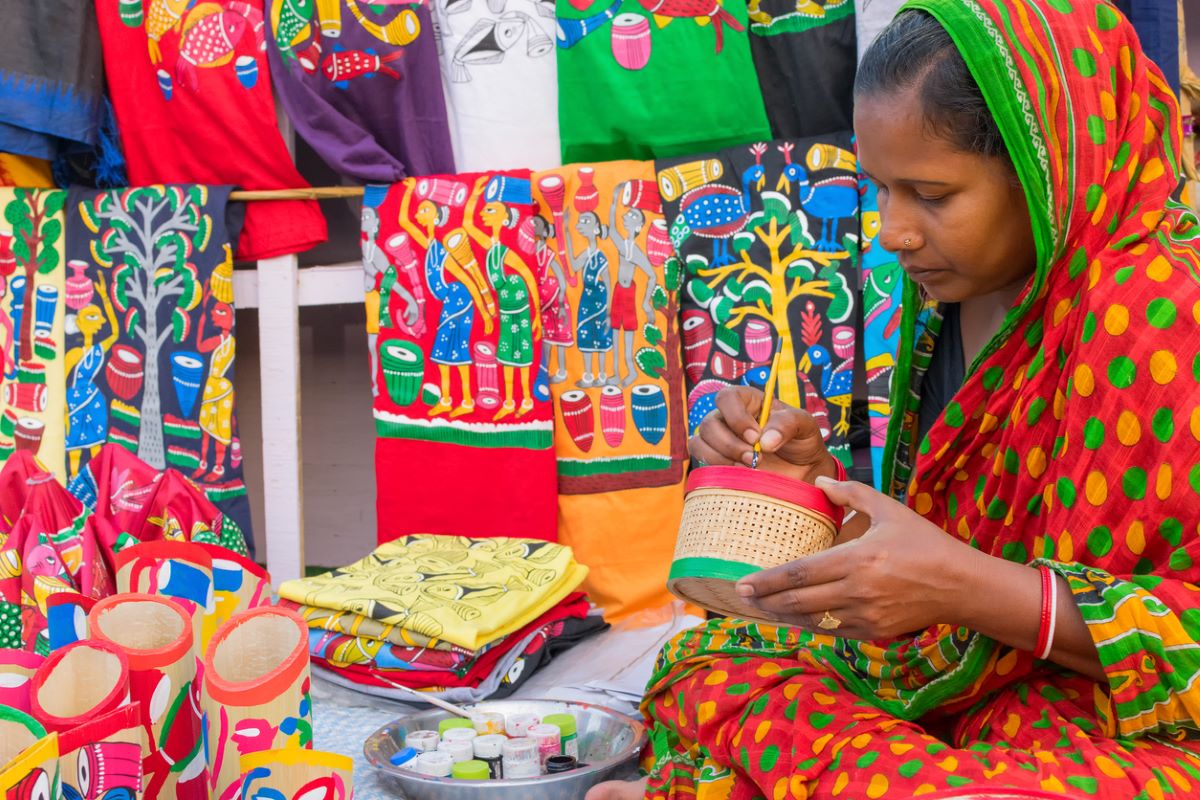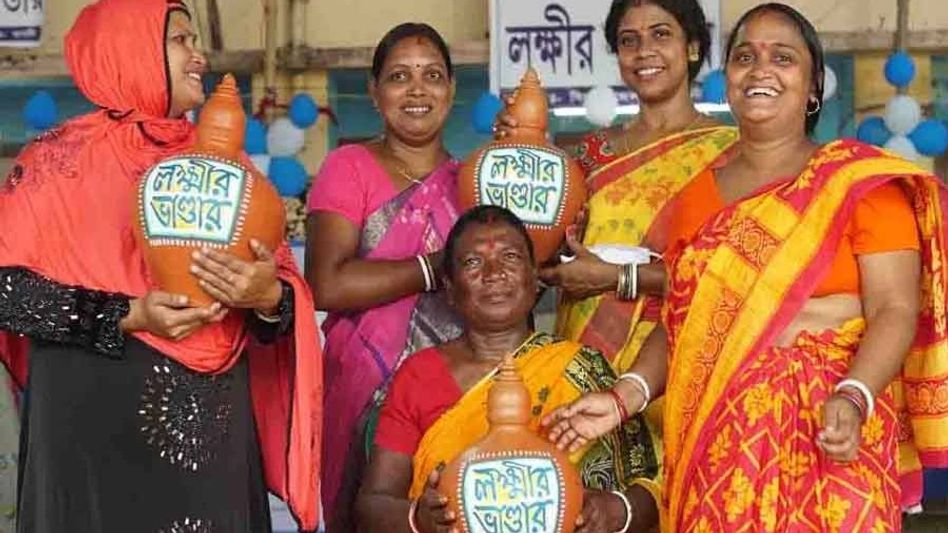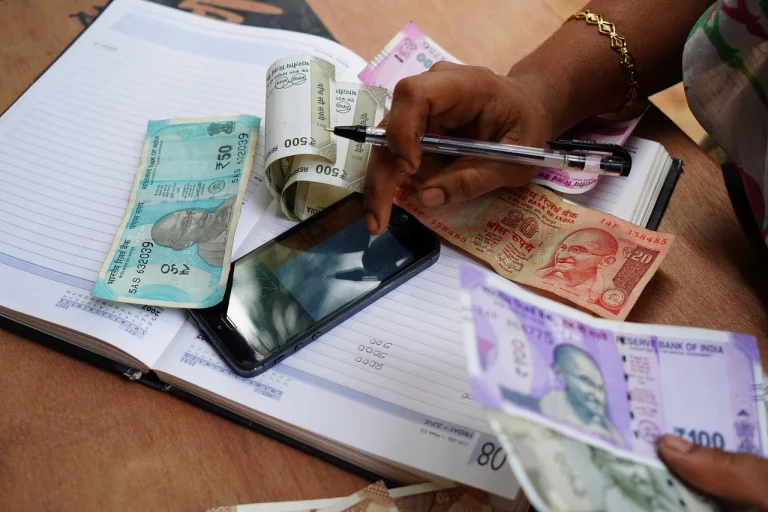Picture this; your feed is inundated with posts and praises on how a cheque has guaranteed empowerment. With a false sense of assurance, you decide to switch off your phone, content with the illusion of empowerment; this is where a political party wins. Meanwhile women on the receiving end of such initiatives can barely make sense of this scheme. It is behind these loud flashes of praise and likes where the politics of freebies takes control through the capitalisation of empowerment making women the most sought after consumers.
Feminisation of welfare schemes: a political propaganda in disguise
Political parties are not as concerned about women rights as they pretend to be. They often use women as symbols of progress in manifesto and campaigns yet the translation of these promises into tangible, long term change remains rare.
This distinct trend of gaining women voters has settled in Indian politics very comfortably over the past few years. The feminisation of welfare under the disguise of empowerment schemes such as West Bengal’s Lakshmi Bhandar scheme, Bihar’s Mukhyamantri Mahila Rojgar Yojana and Delhi’s free bus ride for women scheme are all examples of how politics has maneuvered its way into the development and well-being of women.
Looking at the Bihar State Cabinet under Nitish Kumar’s leadership who recently approved the Mukhyamantri Mahila Rojgar Yojana, we see this scheme successfully commenced in September 2025, providing financial assistance of Rs 10000 which is directly transferred into the beneficiaries’ bank accounts. An additional support of up to Rs 2 Lakh will be provided to scale her work, which is an ambitious attempt to secure economic empowerment.
While the Yojana opens its doors towards development, it raises the question: ‘Who does this initiative actually benefit?‘
While the Yojana opens its doors towards development, it raises the question: ‘Who does this initiative actually benefit?‘
If women are continuously seen as beneficiaries without addressing structural inequalities, they become tokens in the larger political propaganda appearing empowered in rhetoric but disenfranchised in practice.
Tokenism or empowerment?
The Wire called this a ‘Giveaway Blitz‘ revealing the uncomfortable truth that women’s empowerment is being instrumentalised for political gain rather than a long-term investment in gender equality.
Similarly, West Bengal’s Lakshmi Bhandar scheme was introduced under Mamata Banerjee’s government in 2021, provided a total of Rs 1000 to General and OBC women and Rs 1200 to those women belonging to SC/ST communities. The scheme simply provided women with a deposit of money but failed to investigate how this money would be utilised.
The initiative was looked upon as a blessing in disguise for as many as 1.8 crore people, however a report by the Pratichi Institute argued otherwise. While the report agreed that it was a stepping stone for women to become financially independent, it had minimum consideration for those involved in labour participation who were constant victims of under payment.
One of the tea planters of Darjeeling confirmed this gap in implementation and raised a crucial question in the report: ‘Many say to me that the money we get from Lakshmi Bhandar is free. But what about our daily toil and underpay, which doesn’t get compensated as years pass by, so is that also free labour?‘
The paradox of equality and financial autonomy lies here, where the voices of women under the patriarchal system of employment remains unheard under the false sense of optimism that envelops and silences them.
Similarly, a Times of India survey states that 85.6% of women used this money for household expenses and not for investment in the growth of their entrepreneurial skills.
Similarly, a Times of India survey states that 85.6% of women used this money for household expenses and not for investment in the growth of their entrepreneurial skills.
This fails the entire purpose of the scheme where empowerment has been translated into subordinating women back to the domestic sphere without any actual change in their “defined” roles.
Women as vote banks: the capitalisation of empowerment
If looked at with a feminist lens, both these schemes operate within a “paternalistic model of governance” where women are positioned as beneficiaries of state benevolence who need “help” and not as agents of economic change. This mirrors an article published by NDTV, where the Prime Minister called himself and the Chief Minister of Bihar as ‘brothers working tirelessly for the betterment of women.‘ The language of these schemes carries the patriarchal charity framework of being “provided for,” where the only object needed for change is money.
Further the timing of these welfare initiatives right before the elections as argued by The India Express states, how these cash transfers remain blinded towards the spread of gender equality looking at it instead as a form of electoral engineering.
It raises an important question on the longevity of the program of whether it is a populist gesture or the start of a programmed shift in gender budgeting, something which is yet to be seen.
This politics of freebies often branded as “nari shakti” capitalises on this myth of empowerment while sidelining structural reform.
This politics of freebies often branded as “nari shakti” capitalises on this myth of empowerment while sidelining structural reform. The timing of these programs serves as a catalyst to this freebie wave, where cash transfers are viewed as votes in disguise.
Pathway towards real empowerment: beyond empty promises and cheques
Fair implementation however demands more than money; it requires behavioral and institutional change. Without targeted mechanisms, the Bihar scheme risks alienating marginalised women from minority committees or lower caste women, who would avoid participating due to increased uncertainty and lack of digital literacy. Worse still, in many households’ women are reduced to a pawn by their husbands where financial assistance is misused and controlled to acquire money to fulfill their own personal gains. In such cases, programs risk becoming a façade of empowerment while reinforcing patriarchal structures.
The Mukhyamantri Mahila Rojgar Yojana as well as the Lakshmi Bhandar scheme offers a potential blueprint for state supported women empowerment through financial and institutional reforms, yet its impact eventually will rest on its execution. Proper training facilities for Dalit, Adivasi, Muslim and rural women along with increased financial literacy would help bring this policy to life. Further women entrepreneurs in Bihar especially those who are new to this sector, may benefit from sound credit networks immensely.
The conundrum on how far the politics of freebies take us and when can we decipher between policy for the better or policy which merely looks at women as potential vote banks, fails to be heard in the loud chatter of inconsistency and void promises. This is where the gap between policy intention and policy action arises. Both Nitish Kumar of Bihar and Mamata Banerjee of Bengal are symbols of what The Economic Times calls, ‘a redefinition of empowerment through Direct Benefit Transfers‘, reducing women to agents of transaction.
These initiatives might appear empowering in theory, but when put into practice, it translates into yet another act of controlling welfare in the larger political narrative.
Empowerment cannot be bought through a cheque; it begins when women are not treated as tokens to be “saved” for electoral validation but as equal citizens capable of bringing about change.








